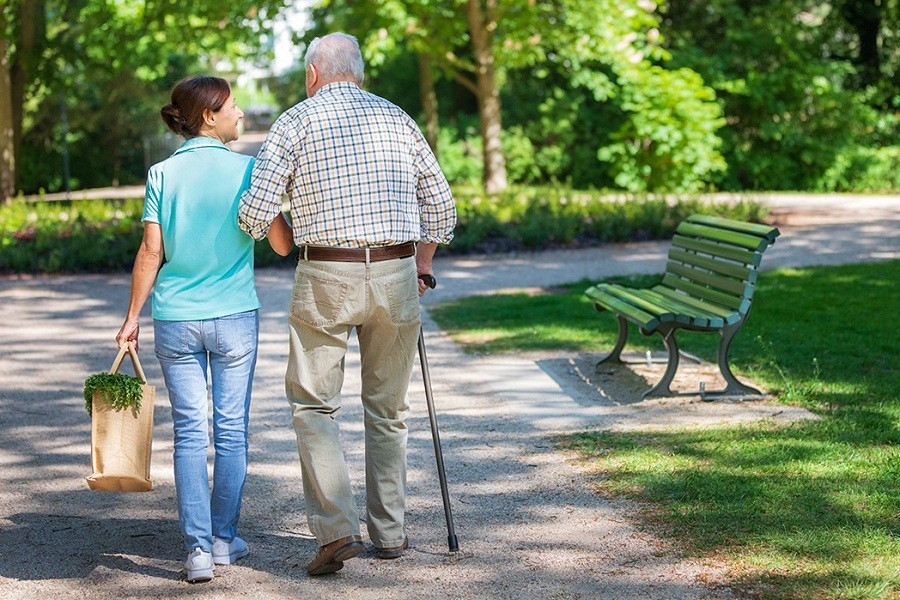
Published :
Updated :

Parents are the best support and shelter for a child. But in the cycle of life, a time comes when they need the same from their children. People lose body strength and mental stability as they get older, which is an irrefutable aspect of life. This impacts their capacity to care for themselves. Eventually, it leads to an increased dependency on their offspring for assistance with everyday activities.
Often taking care of old parents is compared with looking after a baby. But it is more tricky and sensitive in some aspects.
Most elderly parents do not want to put a financial, emotional, or physical strain on their kids. They consider themselves burdens. But they do not want to accept that they need help. With that comes ego-related problems. Sometimes, it becomes difficult to understand their views and perceptions of certain things due to the generation gap. They have a different understanding level of things, which may seem absurd in some ways. But a caring child tries to consider all these difficulties and act accordingly for their parents.
Navid Munawar Khan, a data analyst in a well-reputed private organisation, has both his parents in their late sixties. He shared the process of keeping a healthy relationship with his aged parents, "It is important to reach their understanding level. When I talk to them, I try to realise their point of view and feelings. They might make mistakes and talk illogically, but it is not wise to hurt their sentiment by giving instant corrections."
Many prefer to exclude their old parents from important family discussions. But it is a wrong idea. Parents always want to get involved and contribute to family matters. "In no way can you give a neglecting feeling to your parents. I always like to see them feel important. In the same way, participating in their discussions is also important," Navid added.
A loving and cordial relationship between the child and the parent is always expected. In this case, moral and religious values play a positive role in dealing with parents. Eusha Rahman, a Dhaka University Journalism graduate and a communication expert, supported this concept, saying, "A child should master effective communication with their parents. Besides, initiatives should be taken to reduce the distance between them. Age naturally creates limitations and weaknesses in parental behaviour. In this case, the child should behave properly by giving importance to moral and religious values. They should take their parents' problems seriously as well."
It does not take a lot to keep them cheerful and healthy. The most precious thing that can be given to elderly parents is 'time.' Asking for their needs, taking them out for an afternoon rooftop walk, or visiting a relative's house can do the magic. With that, it is necessary to check on their health conditions now and then. They should be encouraged to meet new people and make friends. This can avoid loneliness during the working hours of their children.
It is a cliché to say that you love your parents when they are old because they loved you when you were young. But this is not a give-and-take relationship. Only a few people on earth should get unconditional support and love from an individual. Parents must be on the top echelon of that list.
But For a working child, sometimes it becomes difficult to balance personal and professional life and spend quality time with parents. In addition, parents have certain expectations and needs. Meeting up those requires tremendous effort and attention. In this context, Navid remarked, "Of course, it is difficult and challenging for me. But I believe that, if I fail in this, it might become a great regret someday, which I never want."
Again, letting your parents' will prevail is also a part of caring, thinks Mohsin Maruf, a businessman from Dhaka's Karwan Bazar, who is in his 40s. Although he has his apartment in Dhaka, his parents are unwilling to live inside the concrete walls.
"I want them here, and they too want to spend time with their son and grandchildren, but they are not ready to leave the village home, their sanctuary."
"Amma (mother) always feels suppressed in Dhaka, and Abba (father) doesn't even like to get on the lift. It is hard not to keep them by my side at this age; however, I strongly feel they will be better off in the open village setting," shared Mohsin.
As the writer talked to Mohsin's elderly father, Mr. Malek, a retired primary school teacher from Nabinagar, Brahmanbaria, he seemed more than happy with his son's efforts to look after them.
"They (his son and daughter-in-law) come to see us almost every weekend, take us to the doctor or for a visit to some refreshing place. My grandchildren also visit us frequently. We feel everything is fine this way."
We may not completely understand the impact our parents' ageing has on them or us as adult children. But there comes a time when the effects of ageing are more obvious and long-term care is required. In extreme conditions, people might consider assigning a caregiver to their parents. But the quality should be checked beforehand because parents' comfort is always paramount to a sensible child.


 For all latest news, follow The Financial Express Google News channel.
For all latest news, follow The Financial Express Google News channel.